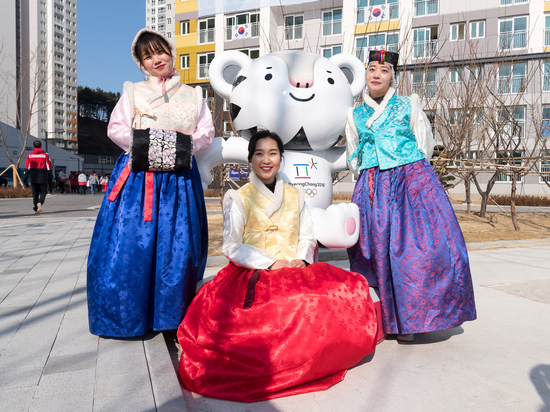“The mysterious story of the South Koreans”: the new law rejuvenated many residents
[ad_1]

If girls around the world usually avoid talking about their age, then South Koreans have always baffled this question. And it’s not about unwillingness to admit what their actual age is. Historically, there were three of them. But the law adopted on Thursday will radically change the situation and bring the republic closer to the rest of the world.
“I’m getting two years younger! I’m so happy! Since I was born in December, I turned two years old so quickly. Finally, I will return to my real age!”, – this is how a South Korean user commented on the adoption of the new law on a social network.
The remarkably reminiscent plot of Francis Scott Fitzgerald’s short story “The Curious Case of Benjamin Button” is not fiction at all. South Korea on Thursday passed a law in which the state will abandon the traditional method of calculating age and adopt an international standard. The changes will indeed reduce the age of people by one or two years, which will be reflected in their personal documents.
The end of confusion with age will come gradually. The country’s parliament has decided that from June 2023, the standard “international age” must be used in all official documents. Such a move was long discussed in the “high offices”, but the authorities were convinced that such a measure was necessary: this would allow the country to become closer to most of the rest of the world, as well as reduce legal inconsistencies due to the use of three age systems.
Yes, there were three: “international age”, “Korean age” and “calendar age”. You need to understand the terminology.
The “international age” of a person refers to the number of years that have passed since his birth, and starts from zero – the same system as in most other countries, including this is customary for Russia.
With the “Korean age” everything is more complicated. When a South Korean is asked in an informal setting the quite familiar question “how old are you?”, a person thinks. Most likely, he would still name exactly the “Korean age”, which is 1-2 years more than in the “international” calculation.
It is believed that South Koreans are one year old when they are born (9 months in the womb “fit” into life experience). Every January 1, a person steadily adds another year. An unusual and increasingly unpopular custom means that a child born on New Year’s Eve is two years old as soon as the clock strikes midnight.
The difficulties do not end there: there is a separate system for calculating the age of men entering the military service, and the age at which alcohol and smoking are allowed. In these cases, the person’s age is calculated from zero at birth, and the year is added on New Year’s Day.
For example, the famous South Korean artist PSY (became famous after performing the hit “Gangnam Style”) was born on December 31, 1977. Attention, calculations: according to the “international age” he is 44 years old, 45 years old according to the “calendar age” and 46 according to the “Korean”.
Such a hodgepodge is reflected in the entire daily life of people. Most often, “Korean age” is used in everyday situations (for example, in a friendly conversation). “International age” has always been used in official documents and official matters.
This tradition has drawn criticism from politicians who believe that South Korea, a large Asian economy and global technological and cultural power, is behind the times. President Yoon Seok Yeol has criticized the numerous age calculation methods as a drain on resources.
The law, passed Thursday, will standardize the use of the international age in all judicial and administrative fields. The text of the bill notes that “the state and local governments should encourage citizens to use their “international age” and carry out the necessary propaganda for this.”
Yoo Sang-bum, MP from the ruling People’s Power Party, said, “The revision aims to reduce unnecessary socio-economic costs as legal and social disputes and confusion persist due to different ways of calculating age.”
But there is another practical reason for revising age calculations. One bill from 2019 also raised this issue. But the motive was not only confusion, but also the fact that such methods “promote a culture of hierarchy based on age, and provoke people to avoid certain months for childbirth.”
Where the system came from is not entirely clear. Many argue that Korea was guided by China in this matter, according to other sources, this is due to the ancient Asian number system, where there was no concept of zero.
The addition of an additional year on January 1 is also explained in different ways. Some experts point to the theory that ancient Koreans placed their year of birth in the 60-year cycle of the Chinese calendar. But at a time when there were no regular calendars, they tended to ignore their birthday and simply add a whole year to the first day of the lunar calendar.
Be that as it may, most young people are happy. They will become even younger, and the awkward feeling when communicating will disappear. Jung Da Eun, a 29-year-old (though by what age) office worker, said she welcomed the change, as she always had to think twice when asked about her age abroad. “I remember how foreigners looked at me in bewilderment because it took me so long to answer,” she said. “Who wouldn’t want to be a year or two younger?”
[ad_2]
Source link








